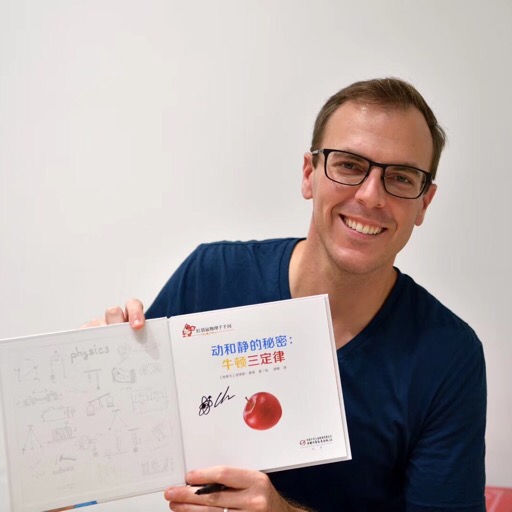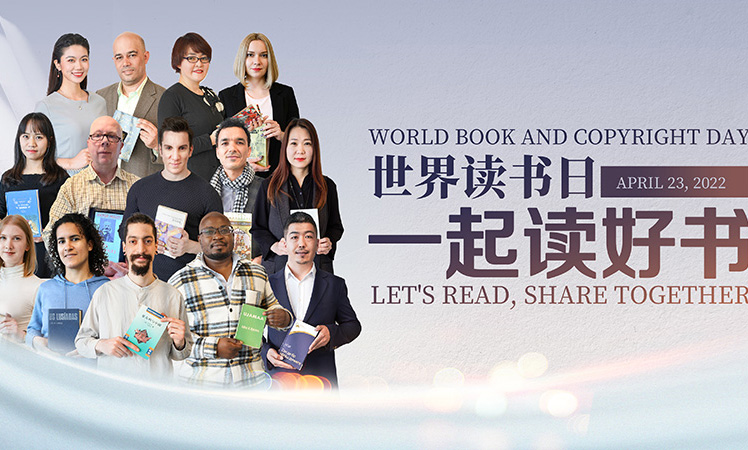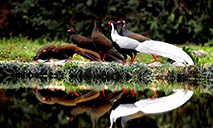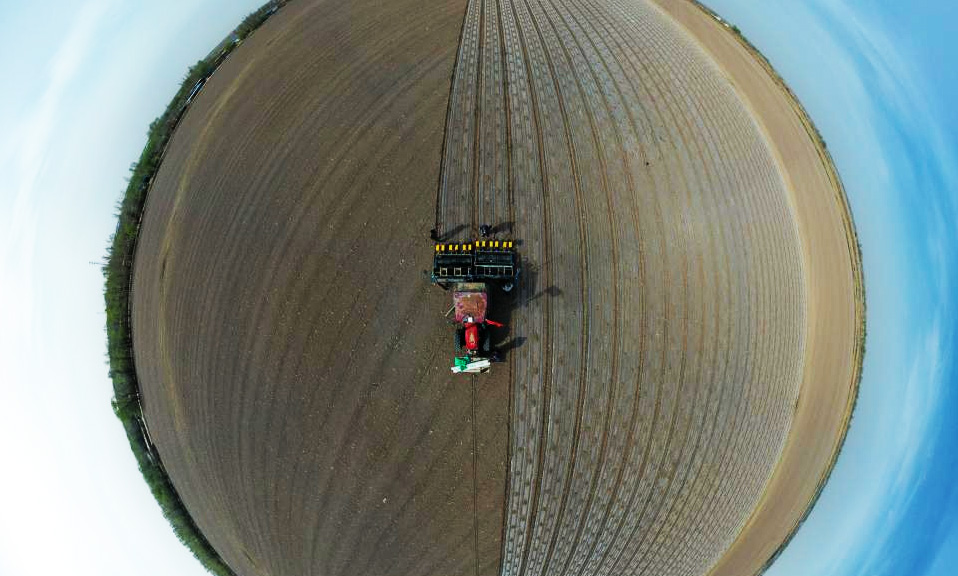Science professor expands curious minds of younger generations with best-selling children’s books, video courses
Chris Ferrie is a scientist with a mission.
As a professor of quantum physics he spends his working life teaching students how everything works.
Quantum physics involves the study of nature’s building blocks and what happens inside the atoms which form the basis of energy and matter.
But how do you make sense of such a complex subject so it can be understood by children?
That’s his mission when he leaves the lecture room at the University of Technology Sydney in Australia.
And he’s become so successful at imparting his knowledge to kids that he’s now a best-selling children’s author and video presenter with a readership and audience of more than five million.
Ferrie specializes in quantum computers and technology at work, but his books and video courses are aimed at explaining equally complicated topics in a style that captures the imagination of younger minds.

Chris Ferrie shows one of his books. (Photo courtesy of the interviewee)
With titles such as “Quantum Physics for Babies,” ”Robotics For Babies” and “Red Kangaroo Thousands Physics Whys,” his books are not likely to end up in university libraries, but they will take pride of place in many a child’s bedroom or at home study.
Ferrie says because children have naturally enquiring minds they are little scientists from birth and have an innate curiosity about the unfamiliar environment they inhabit.
“Scientists are people who explore things based on their curiosity, so when they want to figure out something they go and interact with the world, which is what children do,” he explains.
“If you watch children they always touch things, see what they look like, smell them and try to change them, which makes them natural scientists.”
But their curiosity also needs the right guidance, which is where their parents come in.
And he knows from his own experience as a father of four how he needs to set some restrictions while giving children the freedom to explore their curiosity.
“As parents, the last thing we should do is force our kids to do things they don’t like, because that’s where they start trying to escape,” he adds.
“If they’re being forced to do things they won’t like it and this may even inspire their rebellion against authority.”
That’s why he sees his role as a guide, steering youngsters in the right direction while imposing boundaries to keep them on the best path.
He believes in helping children decide what they want to accomplish, to satisfy their inquisitiveness about the world and cultivate an ideal career direction according to their own preferences.

Chris Ferrie and his family. (Photo courtesy of the interviewee)
But freedom doesn’t mean the right to do what they please, such as watching television for eight hours a day, he insists.
Ferrie often ponders the impact of technology on young lives and likes to think that his own books and videos help both parents and children to understand an increasingly complex world.
For a start, he thinks younger children should develop a scientific awareness, enabling them to use technology in a responsible manner, rather than allowing the technology’s owner to influence their intentions and methods.
That’s why he believes that children’s books like his own play such a significant role.
They build a bridge between young minds and the esoteric and abstract worlds of science.
His philosophy is to cultivate ordinary people’s understanding of science by explaining complicated topics in simple terms.
“Scientists communicate in an academic language that only they can understand, which is incomprehensible to ordinary people,” he admits.
“So I want to create a way for people to understand science, so they can choose to become an expert. When you have the appreciation of science you will know that there are experts who are using science to help the world change for the better and the bridge between you and the scientists will be built accordingly,” he points out.

Chris Ferrie and his family. (Photo courtesy of the interviewee)
And that applies equally to his readers, both young and old.
Although he is seen as a creator of children’s books he knows that a lot of his readers will end up being mums and dads who want their own kids to benefit from their natural curiosity about the world around them.
Toddlers and young children cannot read alone and will need their parents to talk to them and guide them through the text.
Because parents play such a constructive role in the early development of their offspring, Ferrie admits that these adults can also transfer their own strengths and weaknesses onto future generations.
“If an adult shows that they have some anxiety and avoidance about math or technology, then a child will have the same anxiety and avoid it.”
He believes it’s crucial for parents to exude enthusiasm and passion when reading books with their children in order to stimulate and maintain their interest.
“So they can show kids how they should think about science,” Ferrie said.
The professor’s early childhood books and videos have been translated into many different languages and have acquired a worldwide following.
But his mission is far from over.
He intends to continue writing, but targeting teenagers as well this time around.
As his own family continues to grow up, Ferrie’s kids have also become a driving force in this remarkable one-man industry aimed at explaining quantum theory – among much else in the realm of scientific inquiry – to eager and insatiable young minds.
“I think my books will be upgraded with the growth of my own children,” he confides.
But like so much in science, it won’t be easy.
“It’s going to be very challenging because the hardest readers are teenage readers.”
With quantum technology destined to grow exponentially, traditional computers will be overtaken by ever more sophisticated and complex systems.
“China is really leading the world in doing this. They've built quantum communication networks, small quantum computers, and quantum satellites. That has been achieved through coordinated efforts by groups of engineers and scientists and the support of politicians and ultimately, the people,” he says. “We’re entering a new era of exploration full of possibilities.”
The professor has no doubts that this area of science “is in a very rapidly developing stage” now.
The same might also be said of his books.
Photos
 World Book Day: Let's read together
World Book Day: Let's read together Rare silver pheasants flock together in greater numbers to forage at Yishan nature reserve in east China's Jiangxi
Rare silver pheasants flock together in greater numbers to forage at Yishan nature reserve in east China's Jiangxi Young artist takes up brush to create lifelike paintings expressing mankind and nature’s harmonious co-existence
Young artist takes up brush to create lifelike paintings expressing mankind and nature’s harmonious co-existence Cutton farming in full swing in China's Xinjiang
Cutton farming in full swing in China's Xinjiang
Copyright © 2022 People's Daily Online. All Rights Reserved.






